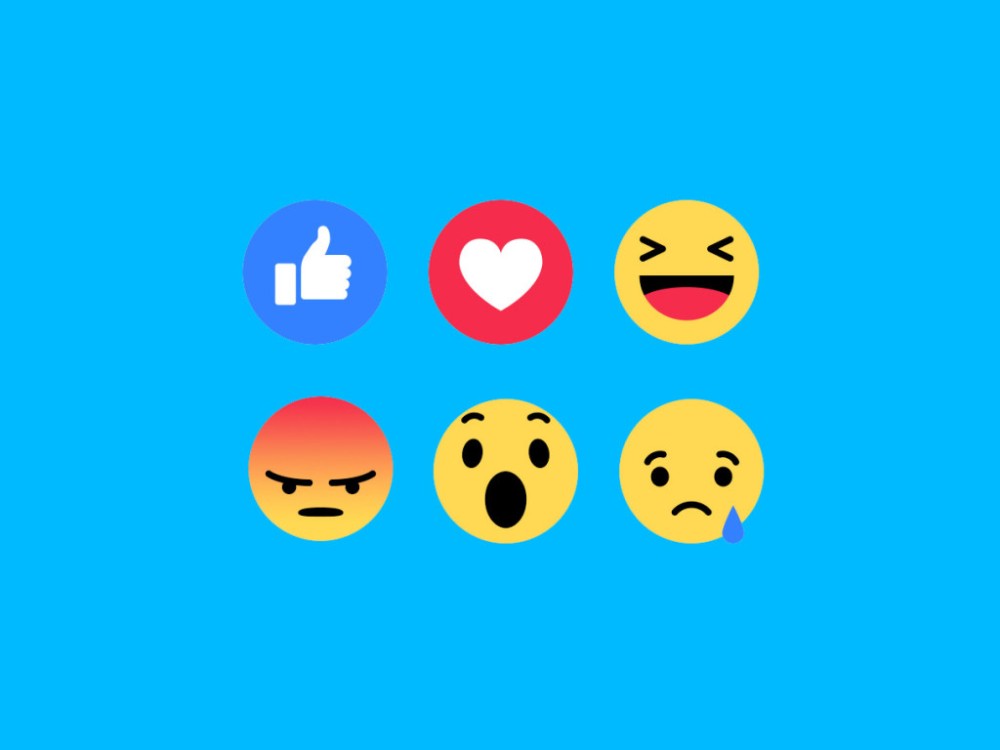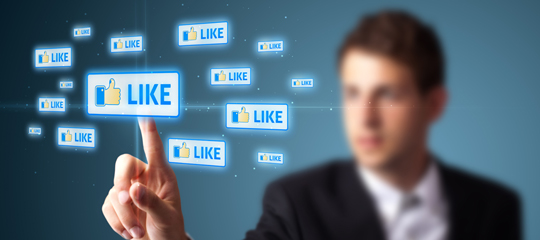By Darcey Haynes
New Study Reveals that One in Four of us Socialize More Online Rather Than in Person

We’ve all been in that tricky situation where you’re unsure whether to ‘like’ a friend’s status; for example, a post announcing the anniversary of a loved one’s death. “What if my like is misinterpreted?” you say, well fear not; Mark Zuckerberg has heard your cries- from today onwards, your Facebook newsfeed about to get a whole lot more exciting: the greatly anticipated “react” button is here.
For a substantial amount of time, Facebook users have been commenting: “I wish I could LOVE this”, well your wish has been granted. By hovering your cursor over the familiar ‘like’ icon you are now enabled to attach your emotional response in the form of emojis: “love”, “haha”, “wow” and “angry”. The ambiguity that a ‘thumbs up’ can cause is now finally stabilised. According to Facebook, the function behind this is to enable users to “easily and quickly express how something you see in News feed makes you feel”.

Despite this “revolution” in new media, it’s estimated that roughly 70% of what we gain from face to face communication is understood through the perception of non-verbal actions– the present issue being that these physical reactions are becoming increasingly replaced by emojis. Professor of linguistics at the University of Bangor, Vyvyan Evans says that this is “essentially fulfilling the function of non-verbal cues in spoken communication” and hence we are gradually becoming desensitized from the reality of emotion. For example, how many times have you replied “lol” to a message and no even so much as smiled?
Online exchanges aided by the platforms of Twitter, Facebook and text messaging are steadily becoming favoured over conversation in reality; it can give its users a sense of confidence that they might not have otherwise. However, this promotion of seemingly  innocent narcissism is disengaging us from literal reality and genuine reaction. More often than not, social media users are aiming to impress their friends or followers by forging an interesting or fun social life, rather than literally being engaged with an event that they are attending . It’s become normality to attend a concert and watch it through your device’s screen, too concerned about the popularity of your posts and the potential for gaining new followers.
innocent narcissism is disengaging us from literal reality and genuine reaction. More often than not, social media users are aiming to impress their friends or followers by forging an interesting or fun social life, rather than literally being engaged with an event that they are attending . It’s become normality to attend a concert and watch it through your device’s screen, too concerned about the popularity of your posts and the potential for gaining new followers.
Last month, YouTube stars Justin and Genevieve perfomed a paraody of the Lion King’s “Circle of Life” that highlighted comedically and accurately, the narcissim but ultimately the disengagement from reality and genuine emotion:
So what do you think? Is the new like button a fun addition to social media or further aiding our increasingly desensitized generation into disengagement? Facebook reasoned that the creation of Reaction was largely influenced by the organization’s ambition to increase user engagement, because quite frankly,the current 1.44 billion active monthly users just isn’t enough.

I will not lie…I use emojis far too much. It does annoy some of my closest friends…this post may actual stop me. Hi-5 girlfriend! xxx
LikeLike